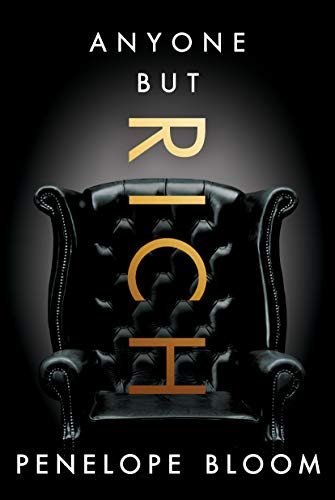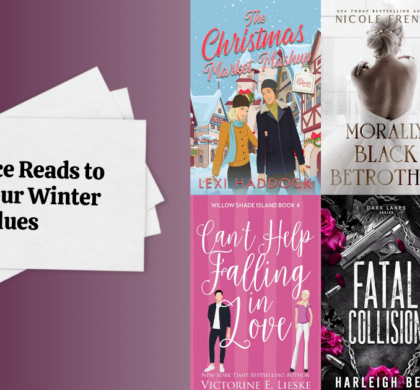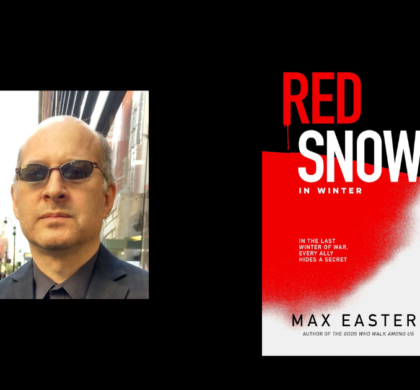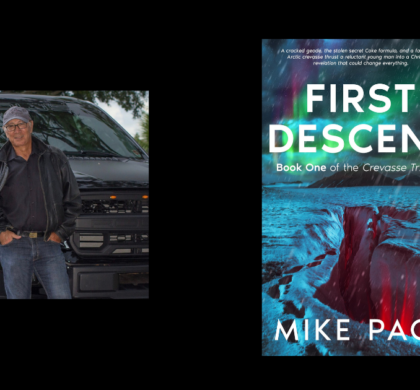The Story Behind Anyone But Rich by Penelope Bloom
03 Sep 2019
By Penelope Bloom
My First Traditionally Published Book
I think my habit is to go on and on about “behind the scenes” kind of information when I do guest posts like this. And… that’s exactly what I plan to do when it comes to talking about my newest book, Anyone But Rich. A marketing guru would probably yell at me and say this is an opportunity to sell my book to you. I should be going on and on about the plot and what makes it so amazing. Buuut, it never feels genuine to me when people use any kind of platform they can get their hands on to promote themselves. So, as usual, my strategy is going to be to talk about something I hope you’ll find interesting, whether it makes you want to buy my new book or not!
Most people could likely guess the fundamental difference between self publishing and traditional publishing. After all, it’s sort of in the name, right? Self publishing is publishing it your self, while traditional is… not? And that’s true, but I wanted to take it a little deeper than that.
I spent four years doing nothing but self publishing before I signed on to do three books with Montlake romance. That meant I had a ton of time to develop my opinions about why self publishing was such a great thing and why I really had no interest in traditional publishing. Things have been going great for me in the world of self publishing, so why would I even consider changing things up?
But around the time the opportunity kind of snuck up on me to do this, my opinions were also evolving. Yeah, self publishing is great in a lot of ways. It’s especially awesome for somebody starting out with no experience because it lets you learn on the job. But there’s a price for those opportunities. Namely, self publishing is insanely competitive. In the relatively short four years I’ve been involved with and watching the scene, I’ve seen countless “big name” authors rise and fall. I’ve seen debut authors have smash hits and spend a year trying to recapture that success before calling it quits or moving to another genre. I’ve seen just how easily success can come and go, including my own personal experiences with that. To put it simply, self publishing can be incredibly, incredibly stressful.
For me, it often reached the point where I had trouble enjoying it when a new book did well. Instead of basking in that moment, I was too busy stressing about how I could possibly follow it up. From a writing standpoint, I felt like a new hit book meant I’d reached some new level of writing that I now had the pressure to maintain. I’d worry about how disappointed my readers would be if I didn’t keep raising the bar and delivering something that met their expectations. And that anxiety doesn’t go away just because I have a publisher to work with, but it does help the compounding effect of worrying about every other element of the “packaging” for my book. I know, as readers, it probably feels like the only thing that matters is the quality of the writing. Unfortunately, self publishing kind of forces authors to face the truth that you can write the most amazing book in the world but nobody will read it if it’s not packaged and marketed well. So it’s a three-pronged approach, and each prong has to be sharp for it to work out.
First and foremost, the book has to be awesome. Second, the packaging (cover, blurb, marketing promo text, etc) has to be great. And last, the marketing and promo have to be timed well, effective, and aggressive enough to give the book enough push for people to even know it released.
And that’s where the biggest difference in working with a traditional publisher has come. I’ve had to stop worrying about the pitchfork of awesomeness (pitchforks have three prongs, right?) and now I just get to worry about my one little pointy stick and making sure it’s as pointy as humanly possible (the book).
I also was kind of stunned to see just how extensive the editing process is. And honestly, it has made me feel like I’ve been doing things wrong in self publishing by comparison. One huge difference is how long it takes for a finished book to reach your hands. In self publishing, I’ve sometimes finished books literal days before they end up on your kindles. At most, it’s about two weeks from writing the epilogue to having it to live. In the traditional publishing world, though, I finished Anyone But Rich very early in January of 2019. It launches September 3rd, nearly nine months after I completed the book. A big part of that is the editing process.
My normal editor for self publishing (who is awesome, by the way) does kind of what I’d call a hybrid between proofreading and dev editing. I am usually running so far behind that she has to work very quickly for me, which also limits the time she can spend diving into every little detail of her thoughts, but she does incredible with the tough circumstances I put her in. In traditional publishing, I have a separate developmental editor and a small team of copyeditors. First, the book goes through as many stages of developmental edits as is needed. The first round is usually pretty extensive and may pull out as many as six or ten kinds of big-ticket items to think about, rework, or “massage”. Those six or ten things may appear multiple times each, which makes it a pretty involved job to go through and work on ramping up an idea here or playing one down there. But I’ve been blown away at some of the things developmental editing brought out of my books in this series.
Unfortunately, one thing about self publishing is how much speed is demanded of authors if they want to stay relevant. Publishing every two months is too slow to stay afloat in the self-pub world. Taking the kind of time I’ve been able to take refining these stories has been such an incredible breath of fresh air for me. It finally feels like I had the chance to go back and make every story in this series the most it could be.
After three or so rounds of developmental edits over several weeks, it goes into the copyediting stage. This is where the grammatical wizards find all kinds of problems, fix them, and make me wonder how I ever passed an English class in my life.
As if that wasn’t enough, there’s a final stage of proofreading, where the book is read to a team of proofreaders who try to catch any last minute, overlooked issues.
I could ramble on about more of how the process has differed, but this post would wind up being three or four times this size. I’ll just wrap things up by saying that I went into the idea of traditionally publishing my books with a bit of nervousness. I wasn’t sure if it would feel right or the same. Instead, I’ve found that it doesn’t feel the same. It just feels better. It feels like I’m able to present a more polished, more thought out and developed book at the end of the day. I’m able to free my mind of all the little miscellaneous things that often get in the way of what I came here to do: write.
Now all that’s left to do is sit back and cross my fingers. I want this series to do well for all the normal reasons, but now I also know an entire team of people took a chance on me. They put their time and energy behind my words, and the responsibility to make that worth their effort is really immense. In the end, I really just can’t believe the release of Anyone But Rich is finally here. It feels like it has been a distant dream now for months and months and months.
Have you ever written a really long essay where you keep adding sentences at the end that are supposed to be a kind of finale, but they never end up feeling like they do the job? Yeah. Me too.
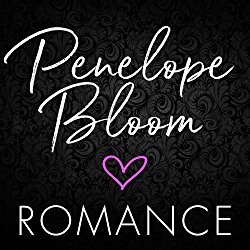
Penelope Bloom is the author of the new book Anyone But Rich.
Connect with Penelope:
Author Page
Buy The Book
Sign up for our email and we’ll send you the best new books in your favorite genres weekly.
